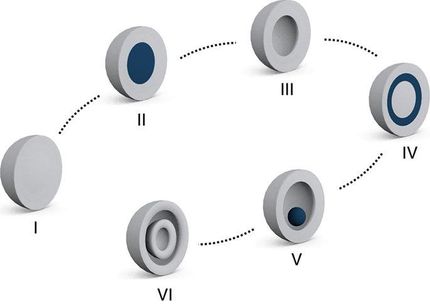The 2024 Balzan Prizes Focus on Sustainable Progress
From Law to the History of Science, and from the Biology of Ageing to Innovative Materials: 750,000 Swiss Francs will be awarded to each of the four winners of the Balzan Prizes
In Milan, the President of the International Balzan Foundation “Prize”, Maria Cristina Messa, and the Chair of the Balzan General Prize Committee, Marta Cartabia, announced the winners of the four 2024 Balzan Prizes.
The announcement was made after the conclusion and synthesis of the selection process aimed at identifying the most promising scientific and intellectual challenges of the present era, and hence the most relevant fields of study and the individuals who best represent them. The research of the Prizewinners announced today responds to society’s need to grasp the scientific and intellectual challenges in today’s world, in a process of continual acquisition of knowledge, in the conviction that science must always offer sustainable solutions to humanity’s problems.
Their contribution to scientific progress in the different realms of knowledge will also be guaranteed by the young researchers who, under the guidance of the Prizewinners, will carry out the research projects financed with half of the total prize sum – as stipulated in the Articles of Association and Rules of Procedure. The value of each 2024 Balzan Prize is 750,000 Swiss Francs (approx. 800,000 EUR , 890,000 USD, 678,000 GBP).
The Winners
- John Braithwaite (Australia), Australian National University for Restorative Justice
- Lorraine Daston (Germany/USA), Max Planck Institute for the History of Science Berlin-Dahlem for History of Modern and Contemporary Science
- Michael N. Hall (Switzerland/USA), Biozentrum of the University of Basel for Biological Mechanisms of Ageing Omar Yaghi (USA), University of California Berkeley for Nanoporous Materials for Environmental Applications.
The verdict was reached after the final plenary meeting of the Balzan General Prize Committee, which started its work of screening and selecting candidatures from academies, universities, and research centres from all over the world on 15 March 2024. Their choices were based on the soundness, timeliness, and coherence of the candidates’ research, identifying specific factors of excellence in their respective fields of study. Interdisciplinary research is a factor that the Committee pays particular attention to in evaluating the nominations it receives.
The four winners will personally receive their prizes on 21 November in Rome, during the awards ceremony in the presence of the President of the Italian Republic.
The Subject Areas
The four subjects in which the Balzan Prizes are awarded change every year. They are chosen from two general categories: literature, moral sciences, and the arts, and physical, mathematical, and natural sciences, and medicine. The rotation of subject areas makes it possible to give preference to new or emerging lines of research and to support important areas of study that are often neglected by other great international forms of recognition. Through the years, this has enabled the Balzan to plot a complete itinerary across all fields of knowledge, achieving the aim stated in the Articles of Association and Rules of Procedure of the Foundation: “the promotion, throughout the world, of culture, science and the most meritorious initiatives in the cause of humanity, peace and brotherhood among peoples, regardless of nationality, race or creed”.
At the conclusion of the announcement of the 2024 Balzan Prizewinners, the Chair of the General Prize Committee, Marta Cartabia, announced the subject areas of the awards for the coming year, 2025:
- History of Contemporary Art
- Classics: Athenian Democracy Revisited
- Atoms and Ultra-Precise Measurement of Time
- Gene and gene-modified cell therapy
The Motivations for the 2024 Balzan Prizes
John Braithwaite for Restorative Justice: For his contribution to the theoretical development and dissemination of the practice of contemporary restorative justice, for his commitment to the service of institutions and social construction, for his work of high scientific and editorial dissemination, for his dedication to the cultural growth of the youngest generations in the values of restorative justice.
Lorraine Daston for History of Modern and Contemporary Science: For the extent, originality and variety of her work, which has drawn on a wide range of scientific fields to highlight the mental representations and values underlying research activity; for the number and quality of her articles and books, which have opened up new paths in the history and epistemology of sciences; for her contribution to the training of generations of researchers; and for her support - as head of prestigious institutions - for innovative research projects.
Michael N. Hall for Biological Mechanisms of Ageing: For groundbreaking contributions to our understanding of the molecular mechanisms regulating cell growth. Michael Hall discovered two proteins, TOR1 and TOR2, that regulate cell growth and metabolism in response to nutrients. These play a central role in the ageing process and in the development of ageing-related diseases such as cancer, diabetes and cardiovascular disease.
Omar Yaghi for Nanoporous Materials for Environmental Applications: For groundbreaking contributions to the discovery and development of nanoporous framework materials, and advancing their applications in carbon capture, hydrogen storage, and water harvesting from desert air. Yaghi developed foundational design principles and innovative synthetic methods, creating two extensive classes of nanoporous materials: metal-organic frameworks (MOFs) and covalent organic frameworks (COFs). These pioneering materials are now at the forefront of global efforts to tackle critical sustainability and environmental challenges facing our planet.































































